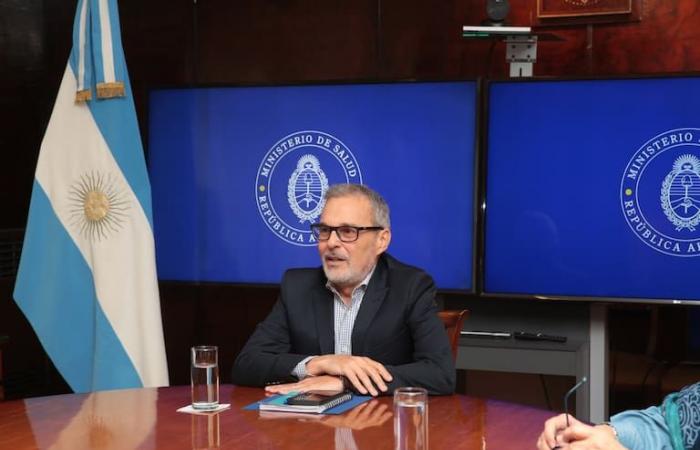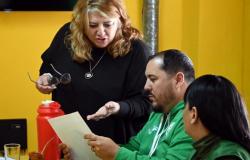Hear
The Government, through the Superintendency of Health Services, yesterday modified the formula with which subsidies are automatically assigned to social works. The reason? Go against the funds of the unions that operate, according to the investigations carried out by the area in recent months, as “rubber stamps” to receive funds and never render them. According to official sources, there are 84 social works that had a portion of the money they had to receive this month cut. The other side of this decision is that other medical providers such as Camioneros, Uocra, Sanidad and Petroleros benefit from it.
Among those affected are the Management Staff of the Buenos Aires Underground Company, with which there has been conflict due to repeated strikes; that of taxis in the City of Buenos Aires; that of Actors; that of Pharmaceuticals and Biochemists; that of the Cemeteries Personnel of the Argentine Republic; that of Argentine Ports and that of the Notary Staff, among others. The list, however, contains associations of companies and not just unions.
The other consequence of the cut is that social organizations with more members, such as Truckers, Health, Oil Workers, Uocra, among others, will receive more subsidies per month. For example, the Moyano guild will go from originally charging $152,774,450 to $172,062,894, 12% more, and the one led by Gerardo Martínez, $503,647,887.01 to $610,654,690.97, an additional 21%.
This is because the decision modifies the Asymmetry Mitigation Subsidy (SUMA) program, which was distributed 80% proportionally according to the affiliates, but 20% in a fixed sum, so the social works of larger size, the amount did not represent a large portion of their income, but in the case of those with less than 5000, it was the majority of their monthly flow. In addition, they received financial compensation, through the Solidarity Redistribution Fund (supposedly destined for high-cost medications, treatment of disabilities, and complex benefits), if what they received per member was less than the average of what they received per member throughout the entire period. the system. From now on, 100% of the distribution will be made by number of affiliates. This means that these social works will continue to receive subsidies, but less money.
What distinguishes them is that they have less than 5,000 members. The ruling party makes it clear that they consider that the vast majority were armed only to receive subsidies and that the number of users did not grow because the current formula disproportionately benefited the smallest ones. The Superintendency audited between two and three social works per week and found multiple widespread irregularities, as reported to THE NATION official sources.
The idea is with this measure to solve the disproportions, but in the meantime, continue the audits and, where an irregularity is identified, the necessary documentation is requested, regardless of the number of members.
Anomalies include, but are not limited to, lack of accountability, absence of membership cards, inconsistencies or a low number of contracts to provide services, deficiency or lack thereof, lack of links with providers and suspicions surrounding who received the subsidies, beyond a general lack of transmission of information to the regulatory entity. There is a social work that has already been intervened. This is the Social Work of the Personnel of the Phosphorus, Ignition and Related Industry (OSPIF). It is because, among other issues, they identified that the funds were deposited directly into the union’s bank account. They did not even enter via the social work, which had to provide the services.
For example, the social work of the Bahía Blanca Press Staff (with 279 members) was going to receive $4,767,927.61 with the previous calculation and will now receive $295,447.84. “They were a job to collect subsidies from the State,” they say from the Superintendency. They emphasize that it was a reward for inefficiency, from his point of view, and that it generated injustice with the rest of the social works.
On average, these 84 social works should have received $24,448,850.10 before this change. Now, the average will be $2,588,585.03, almost a tenth of that. A study of the list shows that although the transfers were automatic and the calculation applied the same for everyone, there are numbers that do not close. For example, two social works (Prensa de Bahía Blanca and one called Cabot Argentina) have almost the same number of members (279 and 272), but the first was going to receive almost $4.8 million and the second, a little more than $230,000. .
In the first months of the year this situation was studied, in May no subsidies were distributed and in June, this new formula will be applied. They also explained that the total amounts were not cut, but that it was a redistribution. Those with less than 5,000 were going to receive $2,053,703,408.65 together, and now only $217,441,142.25.






